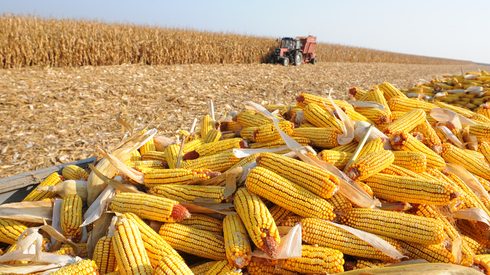US investors continued to reflect on weather outlooks and geopolitics in the week to July 11, factoring in the expectations around an imminent USDA update and ongoing hot conditions seemingly being reported across wider swathes of the world.
Weekly commitment of traders data from the US Commodity Futures Trading Committee shows another major build in corn short positions extended the net short stance, while Chicago and Kansas wheat shed both longs and shorts over the week.
Soybean positions
Soybean dynamics reflected the same trends as corn, with new short positions being added and long positions closed out as investors positioned for the release of the USDA’s July update of its World Agriculture Supply and Demand Estimates (Wasde).
On screen, trading heat was matched by temperatures across large parts of the globe, not least in the Midwest, where rains proved short-lived and hot. Dry weather fears remain, leading analysts and investors to anticipate reductions in US corn and bean yields.
But the contribution of Brazil remains key, nursing two record-breaking harvests amid a relatively restrained demand outlook.
In detail, managed money investors again cut long positions but added a sizeable new short position, with just over 36,000 new contracts added over the week to take total shorts to 214,215, CFTC data showed.
At the same time, 8,805 long positions were closed out, continuing a pattern established last week and reducing total longs to 151,163 – the smallest such position since the week of June 23, 2020.
That tipped the balance into a deeper net short of 63,052 – an increase of 44,843 week-on-week as the trade anticipated the Wasde revealing an increase in US planted area to offset any decline in yields.
Soybeans displayed the same dynamics but elevated expectations from the biofuels world along with weather fears ensured the net long position remained intact.
Just 1,634 long positions were closed out over the week, reducing the total to 121,683, with 4,760 new short contracts added to increase total shorts to 38,934 lots.
That reduced the net long by 6,394, but the total net position remained resolutely long at 82,748.
Wheat positions
Wheat was a more nuanced outlook, though, with Russia entering a new marketing year amid heavy stocks despite fears over the impact of hot conditions across the US.
For the twin CME contracts, both Kansas and Chicago reported reductions on both long and short positions, while Minneapolis boosted longs and marginally reduced shorts.
Starting with Chicago’s soft red winter, investors cut 2,314 long positions and 4,192 short positions – marginally favoring a slight reduction in the overall net short.
Total longs stood at 56,419, total shorts at 108,547 and the net short position was at 52,128 – down 1,878 on the previous week.
Similarly, Kansas hard red winter contracts reported a 485 lot reduction in longs, taking the total to 30,993, and a heavier 1,309 lot reduction on shorts to reduce the total position to 16,409.
That delivered a 14,584 net long, an increase of 824 week-on-week.
Finally, Minneapolis hard red spring saw movements, with 2,159 long positions added, taking the total to 8,137 contracts and a reduction of 82 on short positions that reduced the total to 3,904.
Overall, the net positions more than doubled week-on-week to stand at 4,233, an increase of 2,241 on the previous week.
Take a look at our dedicated page for agriculture market news for further information.






